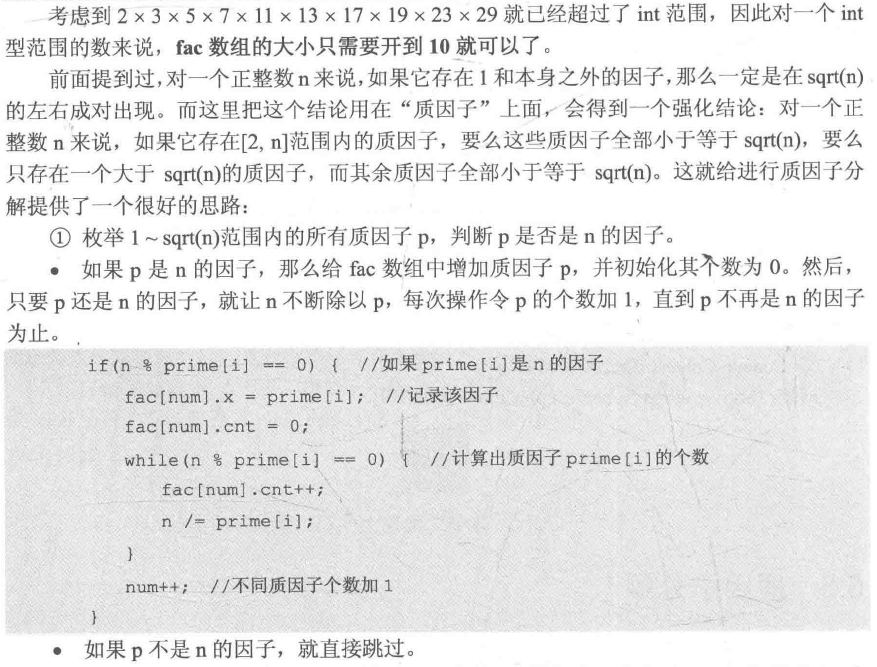Given any positive integer N, you are supposed to find all of its prime factors, and write them in the format N = p1^k1 * p2^k2 …pm^km.
Input Specification:
Each input file contains one test case which gives a positive integer N in the range of long int.
Output Specification:
Factor N in the format N = p1^k1 * p2^k2 …pm^km, where pi's are prime factors of N in increasing order, and the exponent ki is the number of pi -- hence when there is only one pi, ki is 1 and must NOT be printed out.
Sample Input:
97532468
Sample Output:
97532468=2^2*11*17*101*1291
题目大意:
给出一个整数,按照从小到大的顺序输出其分解为质因数的乘法算式
分析:
根号int的最大值不会超过50000,先建立个50000以内的素数表,然后从2开始一直判断是否为它的素数,如果是就将a=a/i继续判断i是否为a的素数,判断完成后输出这个素数因子和个数,用state判断是否输入过因子,输入过就要再前面输出。
原文链接:https://blog.csdn.net/liuchuo/article/details/52261852
题解




#include <bits/stdc++.h>
using namespace std;
const int maxn=100010;
//判断n是否为素数
bool is_prime(int n)
{
if(n==1)
return false;
for(int i=2; i*i<=n; i++)
{
if(n%i==0)
return false;
}
return true;
}
int prime[maxn],pNum=0;
//求素数表
void Find_Prime()
{
for(int i=1; i<maxn; i++)
{
if(is_prime(i)==true)
{
prime[pNum++]=i;
}
}
}
struct factor
{
int x,cnt; //x为质因子,cnt为其个数
} fac[10];
int main()
{
#ifdef ONLINE_JUDGE
#else
freopen("1.txt", "r", stdin);
#endif
Find_Prime(); //此句请务必记得写
int n,num=0; //num为n的不同质因子的个数
scanf("%d",&n);
if(n==1)
printf("1=1"); //特判1的情况
else
{
printf("%d=",n);
int sqr=(int)sqrt(1.0*n); //根号n
//枚举根号n以内的质因子
for(int i=0; i<pNum&&prime[i]<=sqr; i++)
{
if(n%prime[i]==0) //如果prime[i]是n的因子
{
fac[num].x=prime[i]; //记录该因子
fac[num].cnt=0;
while(n%prime[i]==0) //计算出质因子prime[i]的个数
{
fac[num].cnt++;
n/=prime[i];
}
num++; //不同质因子个数加1
}
if(n==1)
break; //及时退出循环,节省时间
}
}
if(n!=1) //如果无法被根号n以内的质因子除尽
{
fac[num].x=n; //那么一定有一个大于根号n的质因子
fac[num++].cnt=1;
}
//按格式输出结果
for(int i=0; i<num; i++)
{
if(i>0)
printf("*");
printf("%d",fac[i].x);
if(fac[i].cnt>1)
printf("^%d",fac[i].cnt);
}
return 0;
}